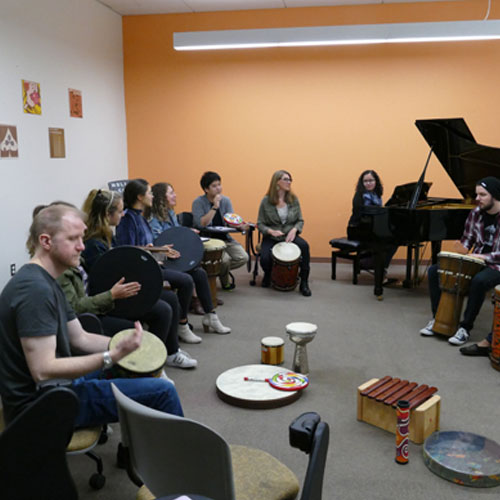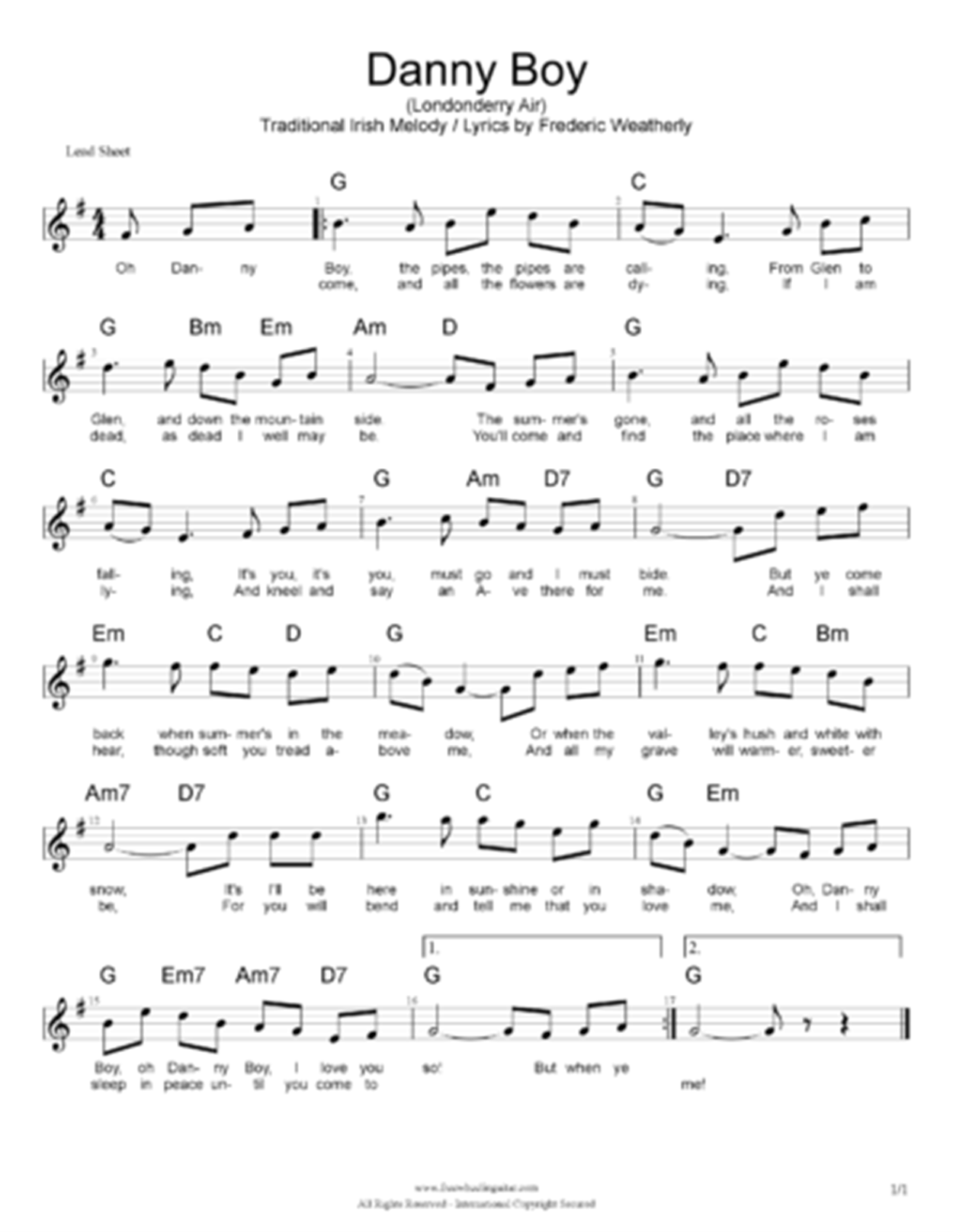Music Therapy

Graduate Music Therapy Audition Information
General Information about Auditions
Prior to auditioning for the Master of Science in Music Therapy degree program, all prospective students should first:
· Complete and submit the graduate degree program application to Molloy University.
· Submit official transcripts from all colleges and universities previously attended.
· Submit three letters of reference from former college professors and/or professional associates.
After applications are reviewed, qualified applicants will be invited to schedule an audition and interview. We look forward to meeting with you and hearing you play and sing at your audition.
Consideration for Scholarships and Graduate Assistantships
Applicants interested in being considered for scholarships and Graduate Assistantships should plan to meet the following deadlines:
- February 1, 2025: Submit a complete admissions application.
- February 8, 2025: Complete an audition.
Graduate Program Audition Dates
Friday, January 24, 2025. 10:00am–3:00pm
Saturday, February 8, 2025. 10:00am–3:00pm
Friday, March 28, 2025. 10:00am–3:00pm
Auditions are available in both Zoom or in-person formats. All applicants will be considered equally, regardless of the format selected.
Prospective students planning to audition via Zoom should review our Remote Auditions page to ensure the best possible experience.
Audition
The audition consists of several components:
I. Primary Instrument or Vocal Performance
II. Voice, Guitar, and Piano Proficiency
III. Sight Reading
Additional activities will also take place:
IV. Improvisation with Panel Member (s)
V. Interview
VI. Post-Audition Essay
Preparing for Your Audition
I. Primary Instrument or Vocal Performance
Perform two pieces or songs of contrasting styles/genres on your primary instrument. Your primary instrument is the main instrument you play with comfort and competency. This may include: piano, voice, guitar, percussion, or any wind, brass, or string instrument. If you have questions regarding your primary instrument, please reach out to music@molloy.edu
Examples of contrasting pieces or songs:
· Different tempi (fast and slow)
· Different time periods (Baroque and Romantic; 1940s and 2010s)
· Different levels of expression (Upbeat and Dramatic)
· One pre-composed and one self-composed, if you are a songwriter
· One song from your culture and one from another culture
· Different styles (Jazz and Gospel; Broadway and Pop; Hip Hop and Reggae; Hard Rock and Bluegrass; Country and R&B)
More Information about Primary Instrument:
Repertoire choices for the audition can be in sheet music form and memorized if possible, especially for vocalists. Memorizing music is a necessary skill in order to remain present in sessions while attending to a client’s needs.
If you are bringing sheet music, please email two additional copies for the audition panel to music@molloy.edu at least five days prior to the live audition.
If there is no score for your song, please send an mp3 or YouTube link with good audio quality to music@molloy.edu at least five days prior to your audition.
II. Voice, Guitar, and Piano Proficiency
Demonstrate basic proficiency by singing while accompanying yourself on piano and guitar. Be prepared to sing and play:
· Two songs, performed on voice and self-accompanied on guitar
· Two songs, performed on voice and self-accompanied on piano
Please prepare a minimum for four different songs. We will choose a minimum of one of your prepared songs for each instrument. Please see our song list. You should choose songs from this list, but if you have a song in mind that is not on this list, please let us know ahead of time at music@molloy.edu.
III. Sight Reading
After playing your two pieces and songs, you will be asked to sight read and sight singing with your choice of accompanying instrument (either piano or guitar).
The song you sight read will be chosen by the faculty audition panel. You will be given a few moments to look over the song prior to playing for the panel. You will be asked to play and sing one verse/chorus of the song.
Sight reading is when you are asked to read and perform music without any previous preparation. The melody will be written out on the staff and there will be chord names above the staff. You will be asked to sing the words of the song and provide chordal accompaniment on your choice of piano or guitar.
In music therapy sessions, clients often request songs that are meaningful to them. Therefore, sight reading is an important skill to obtain.
Helpful Tips:
· Be mindful of the time signature and the key signature
· Find your starting note
· Look over the chords to ensure your readiness to play each chord
· No matter what happens, keep going!
Here is an example of a lead sheet with chords and melody:

Reading Musical Notation:
Music therapists play and sing a wide variety of music from various cultures and traditions that is important to their clients’ lives. Assessing your familiarity with Western musical notation is one way we will assess your overall musicality.
· We may ask you to identify treble and bass clef notes on the musical staff and play them on the keyboard.
· An audition panel member may ask you to repeat two musical ideas: 1) a short rhythmic pattern and 2) sing a short melodic phrase
· We may also ask you to read a short rhythmic phrase and clap it back.
Additional Activities after the Audition
IV. Improvisation with Audition Panelist
You will be asked to engage in improvisational singing with one of the audition panel members. The faculty panel member will begin by playing a harmonic progression on the piano or guitar and singing a short phrase. The panel member will leave a space for you to sing in response. The goal is to assess how you are able to naturally engage in musicing and “have a musical conversation.”
We understand that you may not have improvisational training and that’s absolutely okay and not expected! Improvising during your audition will help us understand how you make music with and potentially for others, as this is what we do in music therapy. Please view this Example of what “improvisation with audition panelist” may look like.
V. Interview
We will interview you to assess your compatibility for Molloy’s music-centered psychotherapy graduate program. We encourage prospective students to research the field of Music Therapy, specifically Music Psychotherapy, prior to their audition/interview, and/or observe or speak with a music therapist. We also encourage prospective students to ask questions about the program during the interview.
If you are interested in learning about the use of music therapy in different communities and settings, you can look at our International Open Access Journal, Voices, A World Form for Music Therapy, and search this website with keywords to locate articles that may be more tailored to your interests.
VI. Post-Audition Essay
We will ask you to write a short essay in response to a given text. You will be given a short music therapy reading with some questions immediately following your audition. You will have 30 minutes to write this essay.
The purpose of the essay is to get an idea about your writing in response to a given text. Your acceptance into the program is not based on this submission. The essay gives us ideas about how we can support you as a writer and scholar. We ask that you do not consult any references, seek editing help, do not utilize artificial intelligence (AI), and to please write in your own words.
Graduate Program Director
Dr. Seung-A Jung
Public Square
1000 Hempstead Ave
Rockville Centre, New York 11570